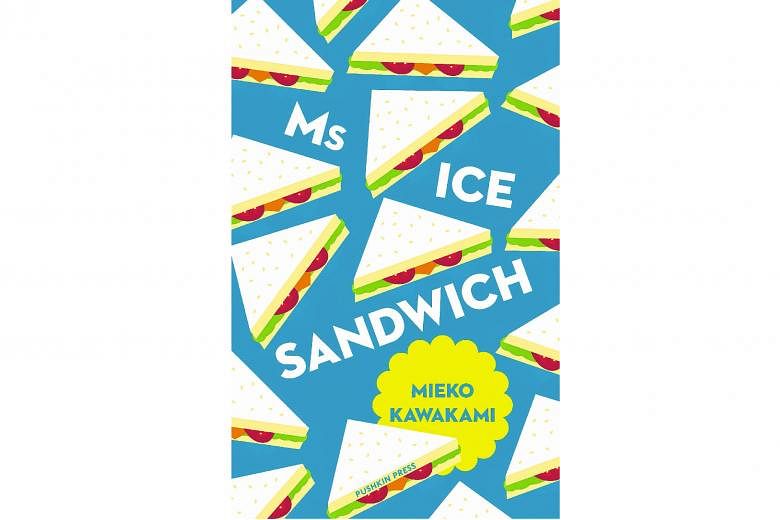FICTION
THE BEAR AND THE PAVING STONE
By Toshiyuki Horie
Translated from Japanese by Geraint Howells
Pushkin Press/Paperback/128 pages/ $13.95/Major bookstores/
3 stars
FICTION
MS ICE SANDWICH
By Mieko Kawakami
Translated from Japanese by Louise Heal Kawai
Pushkin Press/Paperback/96 pages/ $13.95/Major bookstores/
4 stars
Ms Ice Sandwich is a warm, heart-melting story of a boy growing up and experiencing his first crush. In contrast, the short fiction in The Bear And The Paving Stone presents slices of frozen time and unchanging adult protagonists who are either trapped or preserved by their experiences.
Time is both the building block and the theme of many Japanese books which work well in English.
Consider the repetitive loops of scenes in Haruki Murakami's Kafka On The Shore (2002) or 1Q84 (2010), and the circular structure of Yoko Ogawa's Revenge (2012), a novel in linked stories which seems to end with the beginning, even though the reader knows it is impossible.
Like these books, writings by Toshiyuki Horie and Mieko Kawakami also translate into a deceptively simple and attractive rhythm in English.
In Horie's titular story, the narrator dreams of stepping from an ordinary mountain trail onto the backs of wild bears. "Running on a carpet of their hair, thick with bitumen," he thinks, the odd specificity of the word adding to the surreal atmosphere.
Horie's stories are about human connections and unpredictable encounters that lend a hallucinatory quality to everyday life.
The narrator hears the tale of a stonemason whose social faux pas in mediaeval times went on to save him from religious persecution.
The narrator's own friend is a noted photographer grimly shaped by his family's time in Jewish concentration camps. People are shaped by such events, Horie's tales seem to say, even as his narrators contradict this by refusing to evolve.
The natural evolution of childhood is the point of Kawakami's novella, however.
Her unnamed young narrator heads every day to a local grocery store just to buy something from a shop assistant he names Ms Ice Sandwich.
The outing helps him escape from a house where his grandmother lies dying and his mother is too busy to spend much time with her son.
Only when a classmate puts a name to it does the narrator realise he is in love. What he chooses to do then is simple, sweet and an action that affects the life of every character in important ways.
Kawakami's writing is deceptively light. The narrator likes sketching and one of the points made in the book is that one person can be seen differently by different people.
To some, Ms Ice Sandwich is an oddity; to the narrator, her bright blue eye shadow is a key attraction, reminding him of a favourite fairy tale.
Considering this, the relationships between the narrator and other characters take on interesting facets when viewed in different light: Is the mother negligent or careworn, for example? And is Ms Ice Sandwich a fairy-tale heroine needing rescue or is it the narrator who needs help?
Ms Ice Sandwich is poignant to the point of being painful in its sweetness, while Horie's stories are bland with underlying bite.
Reading these two slim volumes together is a treat and the choice of starter depends on the reader's taste.
If you like this, read: Revenge by Yoko Ogawa (English translation published in 2013 by Harvill Secker, $20.95, major bookstores). Ordinary joys and extraordinary sorrows are illustrated in a series of stories about people whose lives are loosely connected to one another and to a central tragedy.





